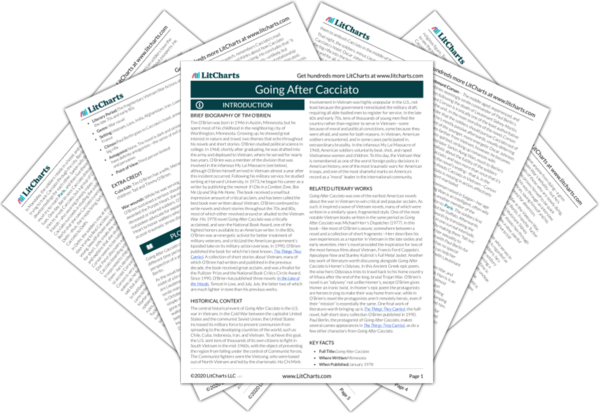The big rifle, one of the more overt symbols in the novel, can be said to mean several things. It’s a large, conspicuous “phallic symbol”—a symbol of its bearer’s power and masculinity. By disobeying orders, Harold Murphy is relinquishing his place in the military, the ultimate masculine institution—thus, he gives up his gun. In another sense, the big rifle is a burden—a cross to be dragged through the jungles of Vietnam. Murphy’s choice to give up the rifle is his way of trying to escape his enormous burden as a seasoned soldier.


